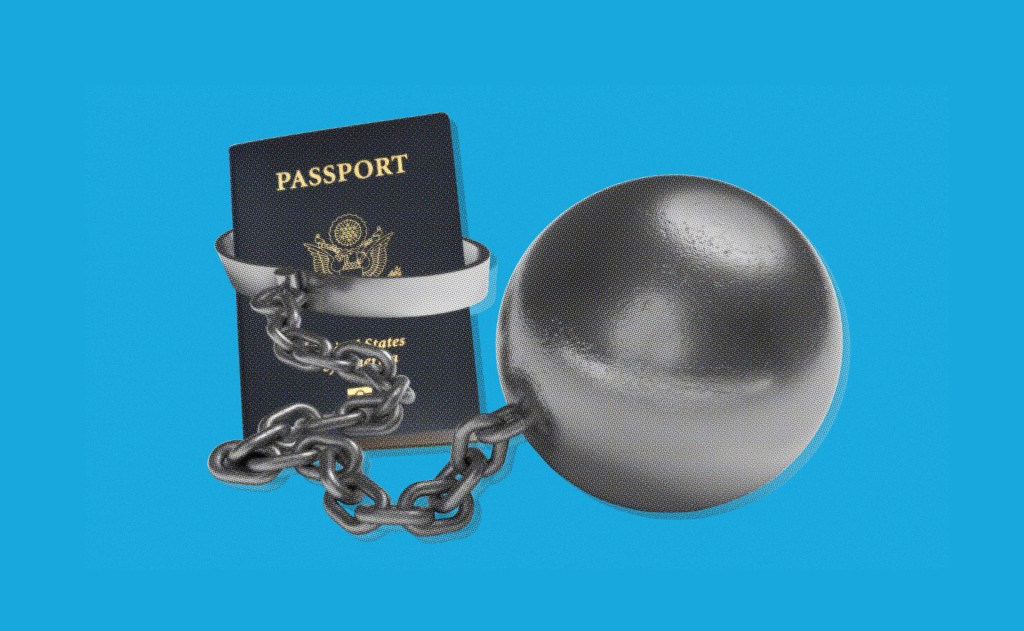When Galang Wibisono walked out of Cipinang Penitentiary, in East Jakarta, he was ready to get on with his life after serving a four and a half year sentence for assault. But, when you’re an ex-con in Indonesia, that’s easier said than done.
Most jobs want a criminal background check, or an SKCK, with your application. Galang clearly had a record and was, therefore, disqualified from my jobs. He was unemployed for three months.
Videos by VICE
“I had to attach my SKCK when applying to be an office boy,” he told VICE. “But I knew they were going to reject me once they saw I was an ex-con.”
Galang’s options were pretty thin. He didn’t want to return to his hometown, in Klaten, Central Java, because he was too embarrassed to tell people back home that he had seen the inside of a prison cell. But he couldn’t stay in Jakarta if he didn’t find a job.
Watch: The Ex-Undercover Cop Exposing the UK’s Police Corruption
Eventually, Galang found a spot on a construction crew and was able to work his way up to running a construction worker agency that handles sites across the country. It was a lucky break that led to something more, but it’s also why Galang was so angry when he saw that nearly 200 ex-cons, all of them jailed for corruption, were planning to run in next year’s legislative election.
“We are trying so hard to change so people can trust us again, but when the corruptors still want to be an official [it’s all fine],” he said. “It’s not fair.”
A recent report by the General Elections Commission (KPU) discovered that at least 199 politicians with corruption convictions were eyeing a run in the 2019 race. This is in spite of a recent decision by the KPU to ban any elected official who has been convicted of corruption, sexual assault of a child, or narcotic possession from running again in a new election. That decision is now heading to the courts after several candidates with criminal records filed a challenge.
Those politicians argue that they have a right to run in an election regardless of their past. But the KPU counters that they’ve already betrayed the public’s trust once and shouldn’t be allowed to be in such a powerful position again.
“Ex-corruptors won’t pass the verification process,” Arief Budiman, the head of the KPU, told local media. “The regulation has clearly showed that ex-cons are ineligible from running for public office.”
The KPU bounced back these candidate’s applications. Some of them served time behind bars, but didn’t even attach their criminal background checks to their documents. But the outcome of this entire battle now rests on the shoulders of the courts.
“We hope this regulation can also prevent elected legislators from doing corruption,” said Almas Sjafrina, a researcher at Indonesia Corruption Watch (ICW).
But, far too often, corrupt officials are caught only to receive a slap on the wrist and little issues with finding work again in the future. Between 2001 and 2015, 21 percent of the nearly 2,600 corruption convictions in Indonesia were of elected officials. Yet, in 2016, out of the more than 570 individuals convicted in a corruption case, only seven had their political rights revoked by the courts, according to a study by Indonesia Corruption Watch (ICW).
Almas Sjafrina, a researcher at ICW, told VICE that the rules need to change before we can consider the outcome of these cases as actual justice. And actual threats might even prevent further corruption in the future, Almas added.
“We hope this regulation can also prevent elected legislators from doing corruption,” Almas said.
But the reality today is still a bitter pill for other, less powerful, ex-cons to swallow. Sigit Priambodo was arrested for sharing pornography on his blog—it’s illegal to share porn under Indonesian law—and he too struggled to find work after finishing his two year sentence.
“The punishment from society is difficult to face,” Sigit told VICE. “It’s hard to find a job. People always underestimate us because of what we did in our past.”
To make matters worse, Sigit’s crimes made the press and is only a short Google search away. He now manages a site where other ex-cons can share their experiences. He also encourages them to start their own businesses and gives them advice on how to do it.
Even the threat of a black mark on your criminal record, conviction or not, is enough to make some people scared. Pradipto Buwono was once approached by police for drinking alcohol in public. He wasn’t arrested, because Indonesia doesn’t have open container laws, but police still threatened to put the incident on his record. For Pradipto, that would mean an end to his work as a driver with a local ride-share app.
“I won’t get a job if I have a record,” he told VICE.
Unless, of course, that job is in the House of Representatives.



